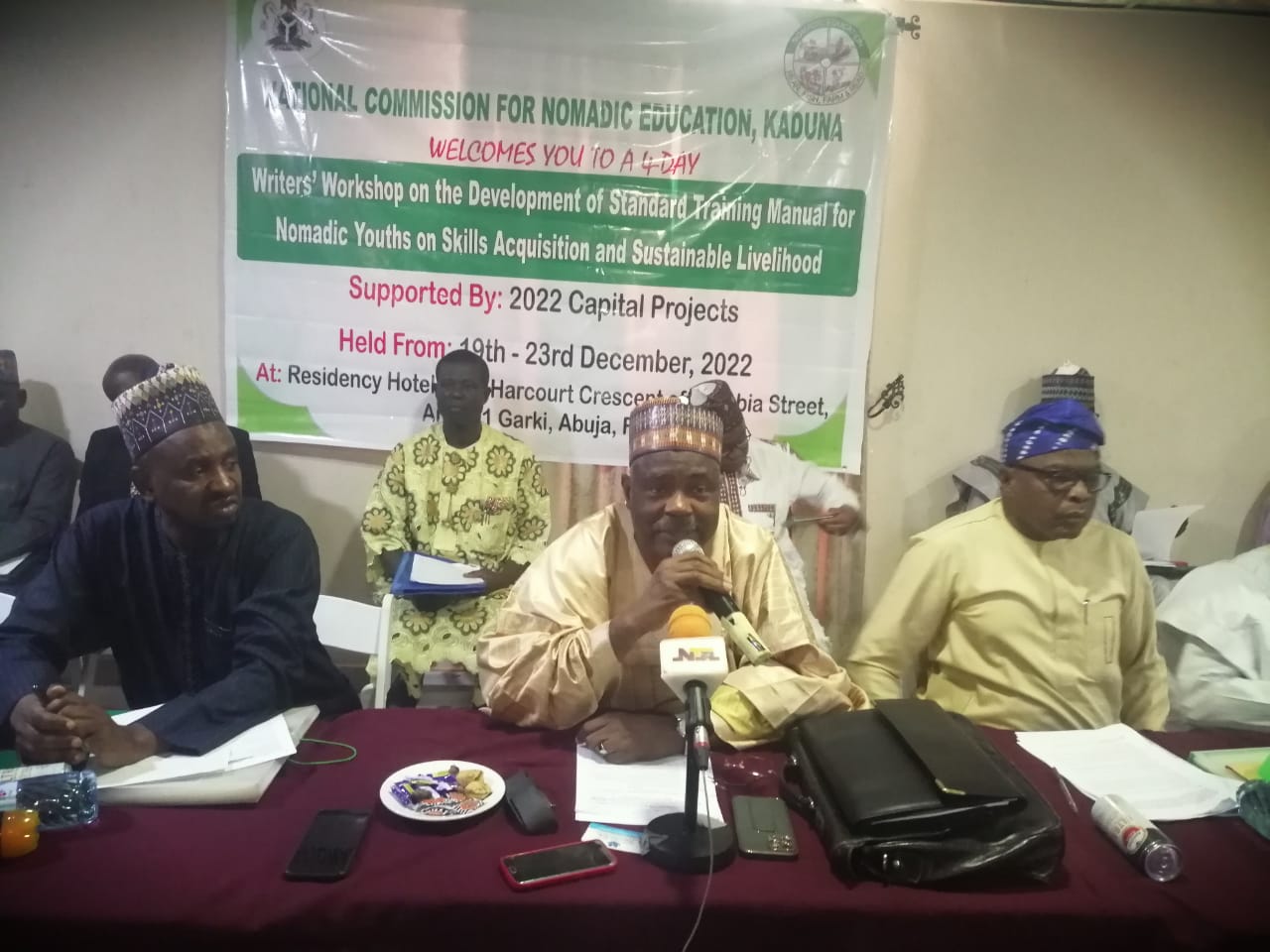The National Commission for Nomadic Education (NCNE) has said that insecurity, kidnapping and other social vices experienced in Nigeria will only end if the youth, especially nomads, are gainfully employed.
Addressing participants Monday in Abuja, at the opening ceremony of a four-day workshop on the development of training manuals on various sustainable livelihoods skills and trades for nomadic youths, the Executive Secretary of NCNE, Prof. Bashir H. Usman, said that in an effort to address some of the key challenges in Nigeria, the Commission developed a variety of approaches, including the promotion of community-driven and need-based programmes in the area of youths’ skills acquisition and sustainable livelihoods.
He said the commission engaged academicians, consultants, experts, technicians and practitioners from various fields to assist us in developing a standard training manual that will be used in capacity development of nomadic youths; to be drawn from pastoralist, migrant farmers and fisherfolks communities.
He said: “This is one of the most important gatherings of consultants, academicians, professionals, technicians and practitioners in various fields of entrepreneurship and sustainable livelihoods skills for our clientele – nomadic youths to be encouraged, guided, supported and tooled to adopt modern entrepreneurship skills and sustainable livelihoods organized by the Commission.
“I consider this very important 4-day workshop for the development of training manuals for our youths and other critical stakeholders from the states very apt and timely. I am particularly delighted that the Commission has at this promising moment taken a leading role in addressing the frightening challenges of nomadism in present day Nigeria through the provision of standard reference material, document, tools information needed to improve the skills of nomadic and make them excel on the job, while using it in improving their chosen need-based and demand driven entrepreneurship and sustainable livelihoods skills.
“It has been established that in sub-Saharan Africa, the youth population is estimated to increase from 195 million in to 284 million by 2030, with approximately 11 million youth entering the labor market each year over the next decade. This shift creates a demographic dividend that, if harnessed effectively, can stimulate economic development and reduce intergenerational poverty.
“However, youths especially those in hard-to-reach/conflict-affected environments often struggle to enter the labor market. To find and engage in productive employment, youth must acquire a range of skills.
“Our teeming youths are very eager to imbibe relevant livelihood skills which play a key role in providing food security and income to millions of families and their communities. Similarly, nomadic communities are characterized by young and mobile population, migration flows within and outside their communities are exacerbated by poverty, climate change, illiteracy and insecurity.
“In an effort to address some of the key challenges in the sector, the Commission developed a variety of approaches one of which is the promotion of community-driven and need-based programmes in the area of youths’ skills acquisition and sustainable livelihoods.
“You will bear with me that empowering the nomadic youths is the means through which they are assisted to succeed in life and having the opportunity to develop the ability they need to become role models who can influence their communities and earn a living for socio-economic and sustainable livelihoods development. Youths’ empowerment is of importance to both nations and the empowered.
“With youths empowerment, the future prosperity of nations is secured because these are the people that are future entrepreneurs of any nation. When they are empowered, through need-based skills, their societies become a good place for all to live. They will assist in the economic activities of the society where they find themselves and in turn, both families and the entire nation benefits.”
On his part, the Director, Extension Education and Skills Development, Dr. Abdu Umar Ardo, said that the objectives of developing a standard training manual on various skills/trades for the nomadic youths and women are to increase trainees’ skills in one or more areas of expertise, improve the trainees’ level of awareness on various skills in-demand to be acquired in the training programme.”
